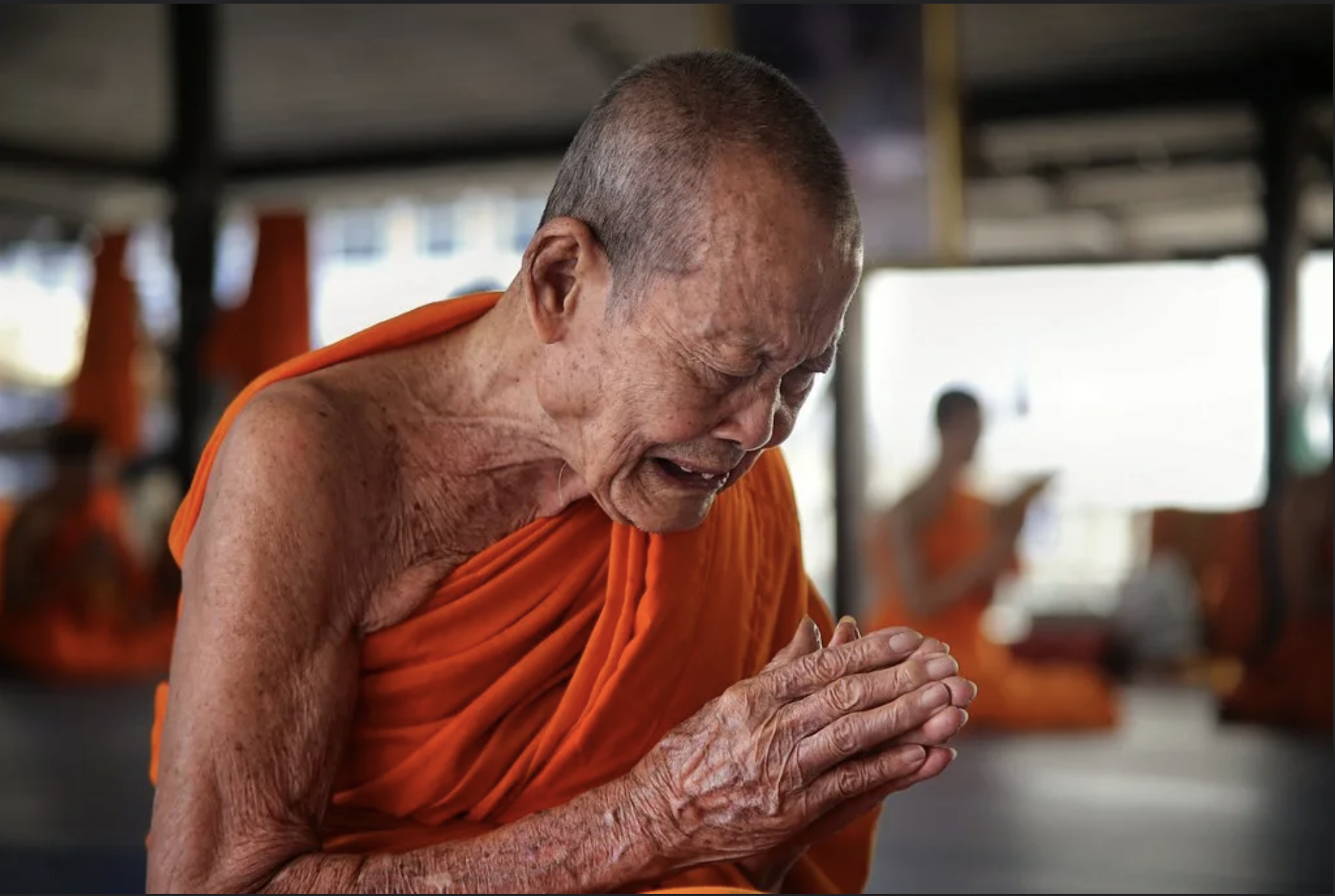We all are experiencing suffering, and we all naturally desire happiness. To be free from suffering, we need to clearly understand the causes and conditions that give rise to suffering and ways to eliminate them. Until we understand that, no matter our wealth, intellect, the success we may have achieved, there is no real peace.
Buddhism teaches us that suffering is a fundamental aspect of life, but it also offers a path to true happiness and enlightenment by eliminating suffering.
The Buddha said, “All I teach is suffering and the end of suffering.”
One of the fundamental doctrines of Buddhism is The Four Noble Truth:
1. There is suffering
2. The origin of suffering.
3. The cessation of suffering.
4. The path leading to the cessation of suffering.
Understanding these truths deeply requires ongoing meditation and reflection. It’s a journey that takes time and dedication.
There are three types of suffering:
- The suffering of suffering – the pain of birth, old age, sickness, and death, as the Buddha described it.
- The suffering of change. When you do get what you want, you can’t hold onto it. Everything is impermanent. Everything will change and disaster, it’s just a matter of time.
- All-pervasive suffering of conditioning. This is the type of suffering that is the hardest to recognize. A basic unsatisfactoriness pervading all forms of existence, because all forms of life are changing, impermanent, and without any inner core or substance. On this level, the term indicates a lack of satisfaction, a sense that things never measure up to our expectations or standards.
The Six General Sufferings:
1.Nothing is definite.
2.Nothing in Samsara gives everlasting happiness.
3.Death is inevitable
4.We have to be reborn again and again.
5.We move from the high tear to the lower states of existence.
6.When we die, we leave everything behind.
Understanding the Root Causes of Suffering
Suffering often stems from various factors deeply ingrained within our minds. Let’s delve into these causes to shed light on how they contribute to our pain.
Desire and Attachment: These are like sticky bonds we form with either internal thoughts or external objects. When we become fixated on possessing or experiencing something, it often leads to suffering.
Anger: This emotion arises when we encounter situations or individuals that trigger harmful intentions. It could be someone who has harmed us, our loved ones, or situations where we feel wronged. The emotions that spring from anger—aggression, resentment, spite, jealousy, and cruelty—only serve to perpetuate our suffering.
Pride: Pride manifests in various forms, such as thinking too highly of ourselves or looking down on others. It could be feeling superior to others, pretending to be knowledgeable when we’re not, or even believing we possess extraordinary powers.
Ignorance: This isn’t just about lacking knowledge; it’s a deeper form of unawareness that obstructs our understanding of reality. It blinds us from seeing things as they truly are, leading to misguided perceptions and actions.
Doubt: Doubt creates a sense of uncertainty, pulling us in conflicting directions and preventing us from making clear decisions. It’s like a two-faced coin, leaving us paralyzed in indecision.
Close-Mindedness: This is a mental state characterized by rigidity and resistance to new ideas or perspectives. It includes traits like concealment, dullness, lack of faith, laziness, forgetfulness, and inattentiveness, which hinder our growth and understanding.
By recognizing these root causes of suffering, we can begin to address them and cultivate a mindset that fosters peace and contentment in our lives.
Impermanence is the nature of suffering.
Realizing impermanence stops us from wasting our lives and thinking we have one more day, one more year, 10 years to make something happen. How do we know that for sure?
We should not be afraid of death, because death is around us all the time and will definitely happen to every single one of us. It is a part of natural evolution. This is the ultimate nature of reality. Avoiding thinking about death will definitely not help.
Meditation on Death is a great tool to realize how precious every moment is. By meditating on impermanence and death one will become more focused on making this life meaningful, practicing compassion toward all, and spreading joy.
You can meditate on these three points:
- Death is definite.
- The time of death is indefinite
- What would really matter at the time of death? Good karma or positive deeds are the only things that are beneficial at the time of death, and that can be carried to a future life.
Learn How to Deal with Death according to Buddhism – here
“Think for a moment: If a man is moving the next day from his hometown to New York, his mind will be thinking only of packing up his things. He will no longer be concerned about his present accommodations, how to fix his oven, or how to make the place he is leaving more comfortable. His mind will be busy packing up the old things, preparing for life in a new place, and planning his new life. His mind will be occupied with preparations for the impending move.
In the same way, a person who realizes impermanence and the inevitability of death will no longer be fixated on this life and will instead put effort into preparing for the future and future lives.”
The Four Noble Truths
Lama Zopa Rinpoche
Suffering is a part of our lives. We are usually trying not to think about it. Therefore Buddhists seem obsessed with Dukkha or suffering and ways of dealing with it.
As Buddha Shakyamuni taught that unless we recognize how suffering affects everyone we will have no incentive to investigate the cause of suffering, the second noble truth, and no possibility of ending suffering, the third noble truth.



